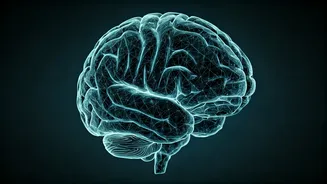Mindfulness Meditation
Mindfulness meditation is a cornerstone practice in Japanese culture for mental clarity. It involves focusing on the present moment, typically through
breath awareness or observing thoughts without judgment. Regular practice can reduce stress, which often clouds the mind, and enhances focus, leading to improved memory. The technique requires only a quiet space, a comfortable posture, and a willingness to concentrate. Start with short sessions, gradually increasing the duration as you become more comfortable. This process not only calms the mind but also strengthens the brain’s ability to filter distractions and retain information more effectively. Mindfulness is a skill that, with consistent effort, significantly contributes to sharper thinking and better memory.
Ikigai and Purpose
Ikigai, or 'a reason for being,' is a core Japanese concept linked to a long and fulfilling life. It involves identifying your passions, skills, what the world needs, and what you can be paid for. This practice encourages a sense of purpose, which in turn fuels motivation and cognitive engagement. When you are driven by a strong sense of purpose, your brain works more efficiently, and memory consolidation becomes more robust. Finding your Ikigai can be a reflective process, requiring introspection and exploration. Start by listing your interests, strengths, and values. Consider how these intersect and contribute to your overall life goals. By aligning your daily activities with your purpose, you create a positive feedback loop that supports mental well-being and enhances memory function.
Brain-Training Exercises
Japanese culture values consistent mental exercises, similar to physical workouts. These exercises strengthen different cognitive functions, including memory, processing speed, and problem-solving skills. Simple activities such as Sudoku, crosswords, and logic puzzles are popular choices for stimulating the brain. These exercises engage different areas of the brain, promoting neuroplasticity, which is the brain's ability to adapt and rewire itself. Engaging in such exercises regularly helps improve focus, enhance memory recall, and sharpen critical thinking skills. It is essential to vary the exercises to challenge different parts of the brain and prevent mental stagnation. Incorporating these brain-training activities into your routine is a proactive step toward cognitive enhancement.
Diet and Nutrition
Dietary habits significantly influence brain health, and the Japanese diet is often cited for its brain-boosting properties. A diet rich in omega-3 fatty acids, found in fish like salmon, is crucial for brain function. The consumption of green tea, known for its antioxidants, supports mental clarity and reduces the risk of cognitive decline. Including a variety of colorful fruits and vegetables provides essential vitamins and minerals that nourish the brain. Limiting processed foods and sugars, which can impair cognitive function, is also recommended. Focusing on a balanced and nutrient-rich diet supports overall brain health, leading to better memory and improved cognitive performance. Prioritizing healthy eating habits is a fundamental aspect of maintaining a sharp mind.
Social Connections
In Japan, maintaining strong social connections is deeply valued for overall well-being. Social interaction stimulates the brain, improving cognitive function and memory. Engaging in conversations, participating in group activities, and spending time with friends and family keeps the mind active and prevents isolation, which can negatively impact cognitive health. Participating in social events and clubs also challenges the brain with new information and perspectives. Encouraging social connections can be as simple as joining a book club or volunteering. Strong social networks provide emotional support and a sense of belonging, both crucial for mental health and memory enhancement. Prioritizing social interactions contributes to an enriched life and supports a sharper, more resilient mind.












